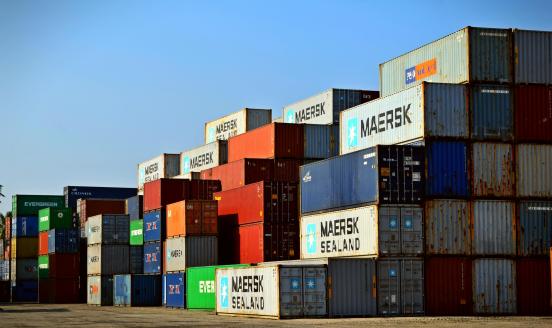Germany’s handling of immigration will shape the future of Europe
Can immigration improve Germany's precarious demographic situation?

A short version of this op-ed was originally published in the Financial Times
When religious persecution around 1700 drove the Huguenots to Prussia’s Berlin and Brandenburg, they added more than 1% to the native population and brought skills, knowledge and technology, with lasting positive effects on Germany’s productivity. 300 years later, religious persecution, war and poverty are driving hundreds of thousands to Germany again. Germany’s authorities expect up to 800000 asylum seekers in 2015, an estimate that may be too high but would represent about 1% of Germany’s population. Immigrants other than asylum seekers would increase that number to far more than 1 million. In 2014, more than 600000 asylum seekers reached the EU. How quickly these immigrants are integrated (or not) will be decisive for Germany’s economy and Europe’s monetary union.
Immigrants are significantly younger than the domestic population. Given Germany’s major demographic challenges , this is welcome news. As Wolfgang Schäuble, Germany’s finance minister, has pointed out, the immediate costs of handling refugees and immigrants are manageable. Long-term benefits to public finance and the sustainability of pensions can be substantial. Research has documented that foreigners currently living in Germany pay more to the state than they receive in social benefits. But the long-term benefits depend on whether and how immigrants are integrated into the German labour market.
Many immigrants bring specific skills and the ability and willingness to work. German industry has discovered this opportunity and has called for legal changes to facilitate the integration of qualified workers in the German labour market. Industry groups are calling for immigrants to be granted the right to apply for apprenticeship positions in Germany, in order to adapt and upgrade their skills. In the last few years, the integration of migrants in the German labour market has been made easier, but significant obstacles remain, and Germany still has a reputation of being restrictive on immigration.
Opening the German labour market quickly and comprehensively to migrants would provide a boost to the German economy. The substantial increase in the labour supply should contribute to increased German output. More workers would mean more investments, increasing growth further. Immigrants would also need housing, benefiting the construction sector. The additional investments in the economy and immigrants’ lower saving rates would boost German demand. The demand boost should also benefit Germany’s neighbours and could help bring down Germany’s current account surplus. In fact, countries with high immigration rates often run current account deficits, such as Spain in the 2000s and the United States. The effect is unlikely to be as big in Germany - but additional workers will need capital and housing.
Some fear that immigrants will dampen wage growth, and make it harder for euro area countries to regain much needed competitiveness relative to Germany. However, the empirical evidence on wage effects is inconclusive. Relatively low-skilled immigrants could even contribute to higher wages for skilled German workers. Qualified workers, such as nurses from Syria and Iraq, may however compete with German workers and potential immigrants from other euro area countries.
More immigrants entering Germany from outside the EU could make it more difficult for migrants from other euro area countries to find a job there. From 2009 to 2014, more than half a million immigrants arrived in Germany from Spain, Italy, Portugal and Greece. These numbers are small given the huge unemployment rates in Southern Europe. There is thus not enough migration within the euro area to make the currency union adapt to the shocks and reduce unemployment rates sufficiently. Immigration from outside Europe won’t help bring down unemployment in Southern Europe – but it could at least contribute to adjustment in Germany, making job creation in Southern Europe easier.
Chancellor Angela Merkel has a historic chance to turn the refugee crisis into an opportunity for immigrants, for Germany and for Europe. Integrating large numbers of migrants is a huge challenge to society and to social cohesion. However if successful, it could boost Germany’s economy – and contribute to re-balancing the monetary union.
Immigration could turn around Germany’s main weakness – its precarious demographic situation - and help pay the pensions of tomorrow. Opening German borders to immigrants will change the economic and political balance in Europe for decades, as did the migration of Huguenots 300 years ago.



